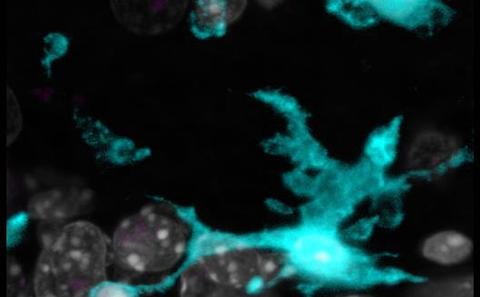Where did your dead neurons go?: Coupling between apoptosis and microglial phagocytosis in health and disease Event
For more information regarding this event, please telephone Kim Lipscombe on 02380 59 7747 or email K.R.Lipscombe@soton.ac.uk .
Event details
Microglia are the brain professional phagocytes, a more beneficial and less explored role than their traditional implication in the neuroinflammatory response. Phagocytosis of apoptotic cells is strongly beneficial, as it prevents the spillover of intracellular contents and restrains the inflammatory response. Despite the potentially central role of phagocytosis in maintaining tissue homeostasis in all the widespread conditions in which apoptosis is known to occur, from development to neurodegenerative diseases, its mechanisms and functional consequences remain poorly understood.
Using as a model the adult hippocampal neurogenic cascade, where newborn cells undergo apoptosis, we have established a series of parameters to quantify the dynamics of phagocytosis in vivo that allow us for the first time to illuminate the intricate interaction between apoptosis and phagocytosis. In contrast to the assumptions in the literature, microglia do not need to be preactivated to become efficient phagocytes and they rapidly detect and remove apoptotic cells in the healthy hippocampus. As a consequence of the short clearance time, only a small proportion of apoptotic cells can be observed. Further, microglia challenged by in vivo excitotoxicity is dysfunctional and display impaired motility and phagocytosis. The apparent early increase in cell death is not the result of the novo apoptosis, but rather, an accumulation of the non-phagocytosed apoptotic cells. The impairment of phagocytosis correlates with the development of an inflammatory response, which provides the first in vivo evidence that phagocytosis and inflammation are inversely regulated. Throughout the talk, I will discuss the essential role of phagocytosis in the brain regenerative response. Finally, I will introduce the concept that assessing phagocytosis is essential to understanding the apoptotic output during brain development and neurodegenerative conditions.
Speaker information
Amanda Sierra, PhD,Achucarro Basque Center for Neuroscience,University of the Basque Country EHU/UPV Ikerbasque Foundation Spain
